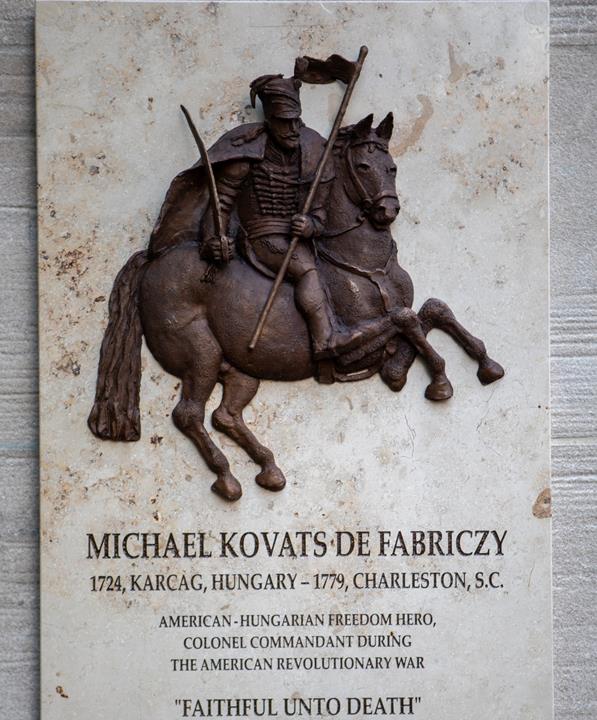A bas-relief depicting the heroic figure of Mihály Fabriczy Kováts (Michael Kovats, 1724-1779), the Hungarian founder of the American cavalry, was inaugurated in Washington, D.C., reported Mandiner.
On Oct. 25, Kossuth House in Washington inaugurated the latest work of Kossuth Prize-winning sculptor Sándor Györfi, a plaque depicting Mihály Fabriczy Kováts, one of the best-known figures of Hungarian hussar traditions and the American Revolution.
The Mihály Kováts Memorial Committee was formed on the 300th anniversary of the birth of Kováts to “preserve and promote his legacy in Hungary and in the U.S.,” read a press release issued by the Hungary Foundation.
“Through existing and new programs, the Hungary Foundation will increase awareness in the U.S. of Kováts’ heroic example, and the historic roots of Hungarian-American military cooperation. Kovats’ legacy is an inspiring example of heroism, perseverance, and commitment to liberty,” the statement said, adding a quote from former U.S. President Ronald Reagan, who called him “a famous Hungarian to who American history owes so much.”

According to the president of the Kossuth Foundation, Sándor Végh, who has been in charge of Kossuth House for many years, “the new relief has symbolic power, as it commemorates the undeniable historical fact that the Hungarians played an extremely important role in the birth of America.”
The central figure of the work created with the help of Sándor Györfi’s sons, Sándor Györfi Jr. and Balázs, is Mihály Kováts, who appears sitting on a horse and wearing a hussar’s uniform, radiating dynamism and strength. Two memorials neighboring this one are for U.S. President Theodore Roosevelt and Hungarian statesman Lajos Kossuth.
The inscription, “Faithful unto death,” is how Kováts had signed the unread letter he sent to Benjamin Franklin, then ambassador to France, in which Kováts offered to “sacrifice (himself) wholly and faithfully” in America’s War of Independence. He then traveled to America to do just that.






